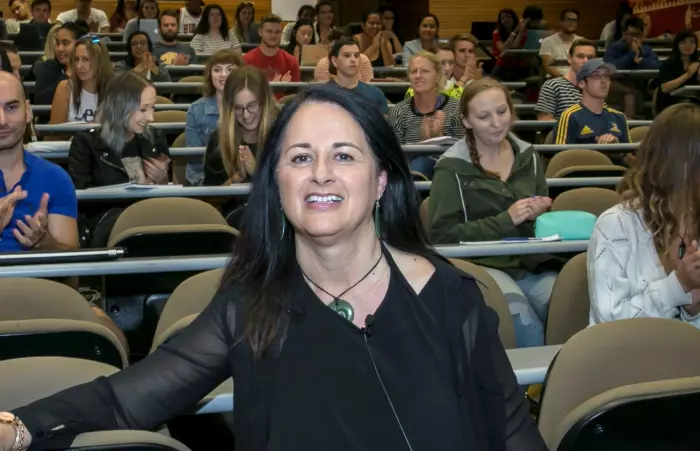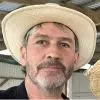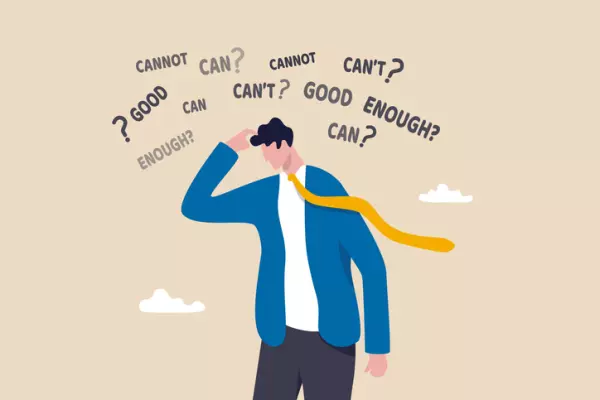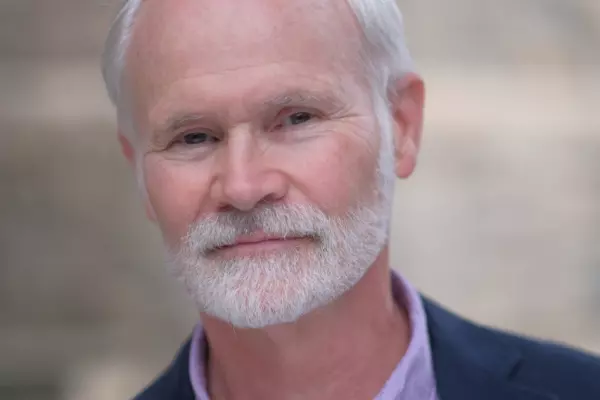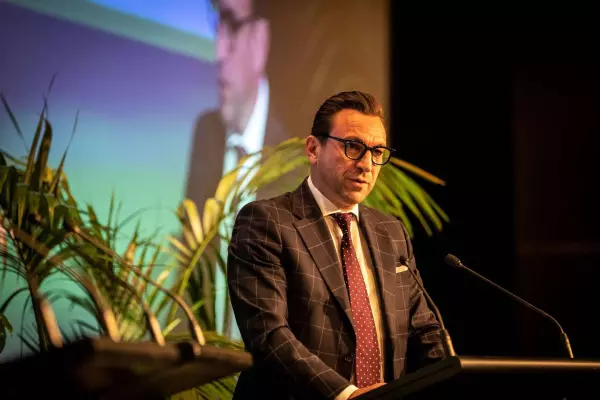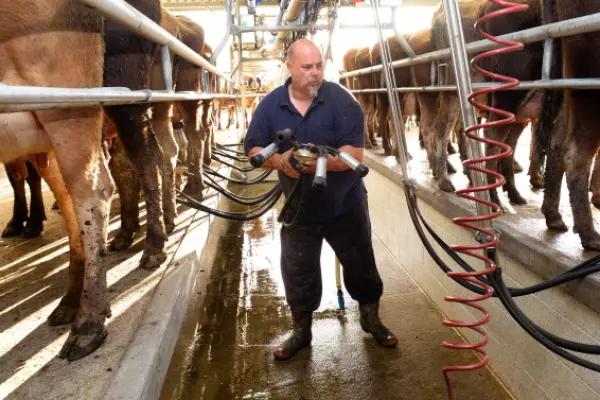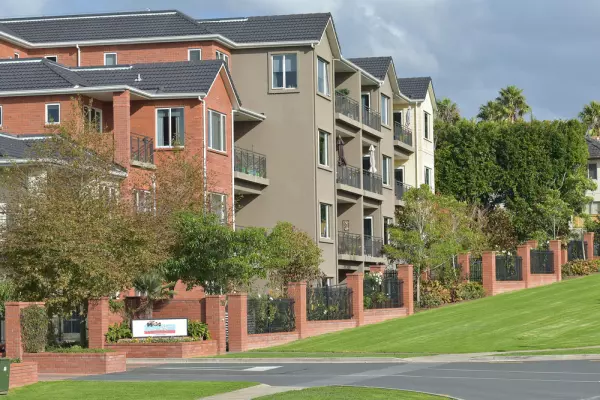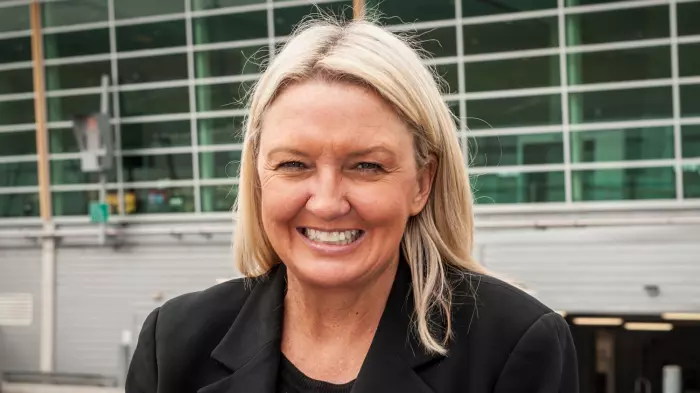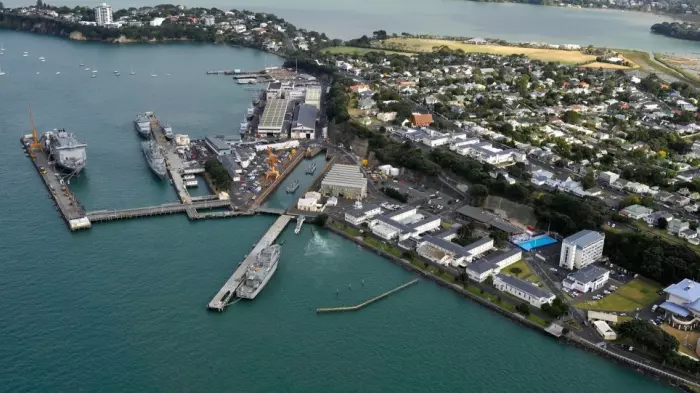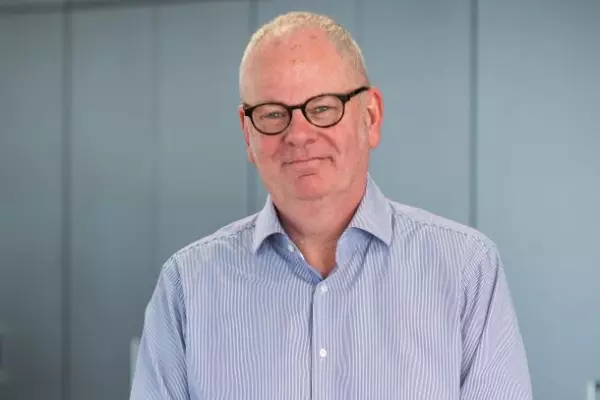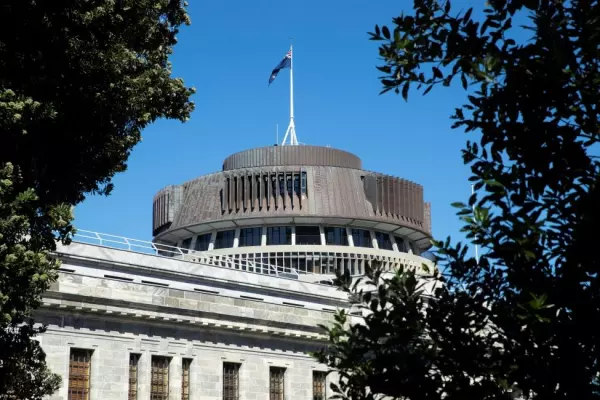Professor Tracey McIntosh wasn’t entirely sure she was suited for the job of chief science adviser at the Ministry of Social Development (MSD). The role would be a significant departure for the academic with a long history of involvement in social issues in general and Māori issues in particular.
She had already come a long way from a childhood growing up in the South Auckland suburb of Papakura as the daughter of working-class parents. As is often the case with successful individuals, her parents – a pākeha father and Māori mother – were exceptional themselves. Her mother was the first Māori woman to get a business loan in her own right, for example.
“Both my parents were involved in a range of politics and progressive in their ideas, especially around Māori issues and around women’s rights,” says McIntosh, Ngāti Tūhoe, who was born in 1959.
“There was a strong sense of being working class, and a pride that the working class worked.” It was a time of high employment and strong unionisation.
“What you had was working-class parents with middle-class aspirations for their children.”
She thinks her parents might have liked her to go to training college and become a teacher. But with their respect for working-class values, when their daughter decided to leave school at 17 and work as a waitress at Auckland airport, they weren’t in a position to object.
Thus began the circuitous route, via long stints in Europe, Africa and the Pacific, to where she is today, with several demanding jobs and a dauntingly long CV.
“My plan was to go to the US and do a rock music pilgrimage,” she says. But French co-workers at the airport convinced her she needed to acquire some culture – “that would probably be read quite differently today” – so at 18, and with barely a word of French to her nom, she headed to Paris.
After a year or so, thanks to a French boyfriend who had to do compulsory service and decided to fulfil his obligation by volunteering, she ended up with him in Burundi. The pair had to look it up on a map to find out where it was.
While in Africa, she travelled to Rwanda. This was before the genocide of 1994, but genocide would be the focus of her PhD, which she completed in 2002.
Between Burundi and the PhD, she completed a BA in sociology (most of it extramurally while living in Tonga and Fiji) before an unexpected scholarship saw her able to go on to do an MA.
Richness and complexity
During this time she had the first of three children with her French ex-partner and is now mother to a blended family of seven plus five mokopuna. Her husband, Steve Matthewman, is a professor of sociology.
Sociology appealed to McIntosh because it “opened up the world and gave richness to the complexities of collective and social life. It is still something that I really value today.”
She worked as a tutor and a Māori liaison advisor for sociology for Māori students.
Appointments and accolades followed in what, in hindsight, looks like quick and logical succession, although there was no grand plan.
Highlights have included appointments as joint director of Ngā Pae o te Māramatanga (NZ’s Māori Centre of Research Excellence) and deputy pro-vice-chancellor (equity) and head of the sociology department at Auckland University; co-chair of the Children’s Commissioner’s expert group on child poverty; member of the government’s welfare expert advisory group (WEAG) and of Te Uepū Hāpai i te Ora (a justice ministry advisory group).
Since 2020, she has combined being a professor of indigenous studies and co-head of Te Wānanga o Waipapa at Auckland with two significant public roles: chief science adviser to MSD, and member of Te Kāhui Tātari Ture (the Criminal Cases Review Commission).
Not BAU
There are science advisors for education, the environment, health and other areas. But why does the Ministry of Social Development need its own?
“Largely, it is ensuring that policy and practice are research-led with a strong evidence base,” explains McIntosh. “Sometimes the role may include challenging ‘business as usual’ approaches to complex issues. I think one of the things that led me there was being involved in a range of other advisory groups, such as WEAG, which looked at transformation in the social security system.”
You might think chief science advisors, who meet every month, are a homogenous bunch of boffins, but they are a diverse crew. “We all are so different. We come from a range of disciplinary backgrounds from the life sciences, physical sciences and social sciences. We look at different issues individually and collectively.”
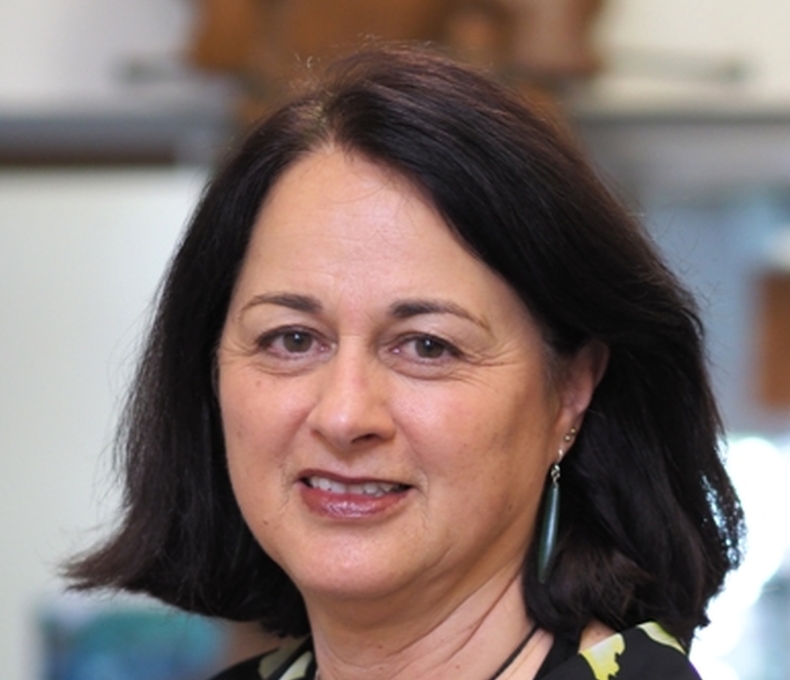 Tracey McIntosh: the social environment can be remade (Image: supplied)
Tracey McIntosh: the social environment can be remade (Image: supplied)As for those original doubts about her suitability for the role, they were soon dispelled. “Most of my academic career has been critiquing types of social structure, and looking for Māori and indigenous solutions”. That turned out to be a good fit.
While working with the WEAG, “I had become much more exposed to the MSD and saw some of the incredible people working in it. I recognised there were many people there who wanted to create conditions of change and transformative outcomes.”
That aligned with her focus on “groups who are over-represented and under-served” and ensuring “that we are not enforcing or reproducing disadvantage”.
Justice delayed
Starting in the science advisor position just before the first covid lockdown meant the job was not precisely as advertised. “The pandemic has really changed what we deal with.” MSD in particular has had to deal with changing needs as a result of covid’s impact. “Often there has been urgency and an immediacy about the issues.”
Covid has also seen other issues on which McIntosh has worked extensively put on pause, including prison reform. But her Te Kāhui Tātari Ture commissioner role reviewing possible miscarriages of justice has been full-on. “We have had a higher uptake than expected.”
McIntosh is acutely aware that the commission’s work only deals with people at one end of the judicial process. “We need something transformative at the beginning, too, around things like health and welfare. One of the things we can do, apart from the cases we review, is look at systemic issues. I am excited that we can draw on the experience and research and expertise and have something that is culturally informed.”
She is also exercised over another area of public policy in the time of covid: “One of the issues I am interested in broadly is decision-making in times of crisis – how decisions are made, what evidence is called upon, but also what is paused and what is accelerated.”
When it comes to penal reform, “how will we pick up the things that have been paused? There are concerns around areas where things have slowed.”
She is also aware that determined efforts have been made – but failed – to address these issues before. “If we look at the really important reports from the late ’80s by Moana Jackson [on prison reform] then the report in 2018 by the Welfare Advisory Group, there is still an urgency to address these issues and it does speak to the broader wellbeing of the nation to address them.”
Evidence-based solutions
Many will perceive McIntosh’s positions on a lot of issues as being radical or extreme. Her advocacy of the abolition of prisons, for instance, is still to gain policy traction anywhere. Poverty, prisons, social development and a pandemic are all connected at some level, and increasingly visible in the mix is the increasing awareness of mātauranga Māori – Māori science – in the general consciousness.
Mātauranga Māori “informs the work I can do as a chief science adviser. What is distinctive in the policy science landscape here, as opposed to other countries, is that along with western science traditions we have Te Tiriti and mātauranga Māori, and this should be seen as one of our single greatest opportunities to have enduring, culturally informed, evidence-based solutions to complex problems.”
McIntosh is trained in the western system. “That is observation and experiment. And that is what mātaruanga Māori is.”
Knowledge that is traditional, she points out, is not static or unchanging. “Knowledge traditions, by their nature, open themselves up to critique. All knowledge traditions generate new knowledge.”
One aspect of her work that is not entirely within her control is the point at which advice intersects with politics. Policymakers and science advisers can put forward the best evidence that they can muster, but it remains up to those in positions of power to accept or reject that advice.
McIntosh is phlegmatic on that topic. “You have to be engaged with all of the people who are involved in creating the conditions for positive change. And there needs to be political will to create change. I expect politicians to be political.
“But I’m a sociologist, so I believe our social environment is constructed. We have made it and we can unmake it and remake it."


